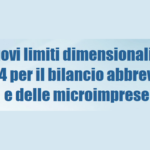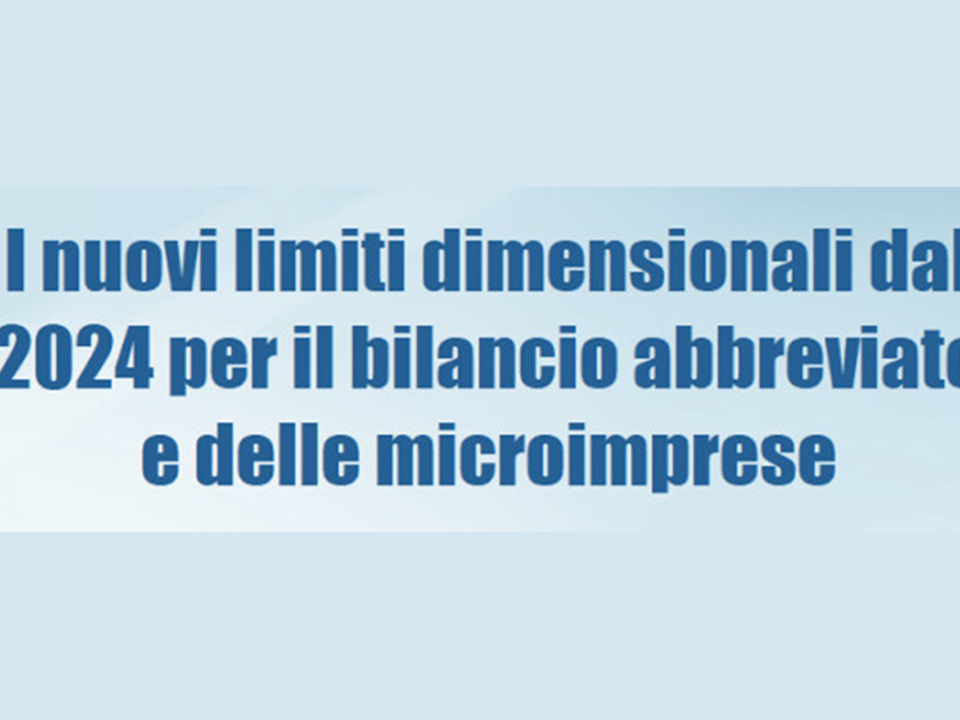
Exclusion from Access to the Biennial Preventive Tax Agreement
October 25, 2024
Increase in size thresholds for the preparation of Micro and Abbreviated Financial Statements
December 16, 2024The spin-off demerger, introduced by Article 2506.1 of the Italian Civil Code through Legislative Decree No. 19 of 2 March 2023, represents a particularly interesting case in the field of extraordinary corporate transactions. However, its tax treatment is currently under discussion in Parliament, with the aim of aligning Italian legislation with EU directives.
Legislative Decree No. 19/2023 introduced into the Italian legal system the so-called “spin-off demerger” (scissione mediante scorporo, under Article 2506.1 of the Civil Code). This operation involves the transfer of part of the demerging company’s assets to one or more newly incorporated companies (“NewCos”), while the shares or quotas issued by the NewCos are not assigned to the shareholders of the demerging company, but to the demerging company itself. The company thus continues its activity and the operation offers an alternative to a contribution in kind for transferring assets and liabilities to newly formed entities.
This new provision, governed by Article 2506.1 of the Civil Code, implements EU Directive 2019/2121 on cross-border conversions, mergers, and divisions.
This allows the transfer of part of the demerging company’s assets (including equity investments) to one or more newly incorporated companies, with the key feature that the shares/quotas of the new company are assigned to the demerging company itself—not to its shareholders—while the demerging company continues its operations.
The key features of this type of demerger include:
- Partial allocation of the demerging company’s assets to one or more newly established beneficiary companies;
- Allocation of shares/quotas in the beneficiary to the demerging company itself (not to its shareholders);
- Continuation of the demerging company’s business activity.
It is important to note that, according to Article 2506.1, if a company transfers part of its assets to one or more pre-existing companies and receives equity interests in return, this would not qualify as a spin-off demerger.
On 30 April 2024, Draft Decree No. 21 was approved. Article 17 of this decree introduced tax rules for spin-off demergers into the Italian legal system, integrating Article 173 of the Italian Income Tax Code (TUIR). These rules will apply to spin-off demergers carried out during the financial period in which the decree comes into force—likely and hopefully starting in 2024 (although everything remains subject to change until the final version is approved and enacted).
In line with the principle of tax neutrality for demergers as outlined in Article 173 of the TUIR, the continuity of tax values is preserved. Specifically, the equity interests received by the demerging company are attributed the same tax value as the assets transferred to the beneficiary. Conversely, the assets and liabilities transferred assume in the hands of the beneficiary company the same tax value they had in the demerging company.
As for the tax attributes of the equity interests received by the demerging company, if the spin-off involves a business unit, those shares are recorded as long-term equity investments (fixed assets) in the same financial statements in which the transferred business’s assets and liabilities were recorded. They inherit the original holding period and classification for the purposes of the Participation Exemption (PEX) regime under Article 87 of the TUIR.
Choosing between a “spin-off” and a “contribution in kind” should not give rise to abuse under Article 10-bis of Law No. 212/2000, since both transactions are legitimate means for transferring assets to a newly incorporated, wholly-owned company.
According to Article 10-bis, paragraph 4, the taxpayer retains the freedom to choose between operations with different tax implications, provided those operations are considered equally legitimate under tax law.
The tax value of the participation assigned to the demerging company as a result of the spin-off should be determined using the criteria set out in Article 176, paragraph 1 of the TUIR. That is, the tax value of the transferred net equity is carried over to the participation received in the beneficiary company.
In a spin-off demerger, the tax value of the equity interest in the beneficiary is newly established and should match the value of the transferred net assets, in line with the principle of tax neutrality. This excludes the use of fair market values, which apply only in the context of dividing up previously held participations (see Resolution No. 52/2015 and replies to tax rulings No. 811/2021 and No. 503/2022).
Until the final approval of the proposed amendments to Article 173 of the TUIR—including the introduction of new paragraphs 15-ter, 15-quater, and 15-quinquies—the tax treatment remains subject to uncertainty.
The revised Article 173 of the TUIR would regulate four key areas:
- The tax regime of the assets allocated post-demerger, both for the demerging and beneficiary companies, and how assets and liabilities are allocated;
- The tax regime for reserves of both companies involved;
- The treatment of demerging companies that are not resident in Italy;
- Whether or not subsequent transactions involving the shares of the demerging company trigger the application of anti-abuse provisions.
A key point is that the draft decree confirms the continuity of tax values in line with the neutrality principle of Article 173.
On 14 October 2024, the draft decree was submitted to the Parliament.



